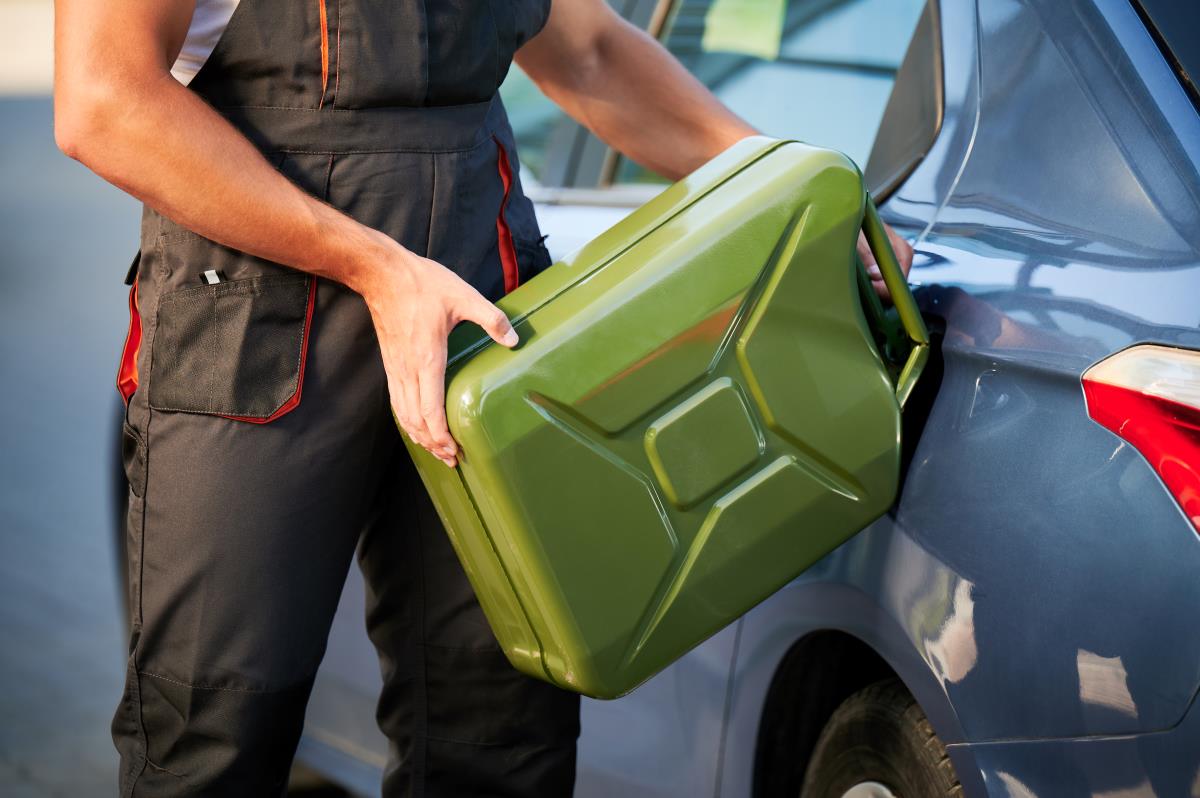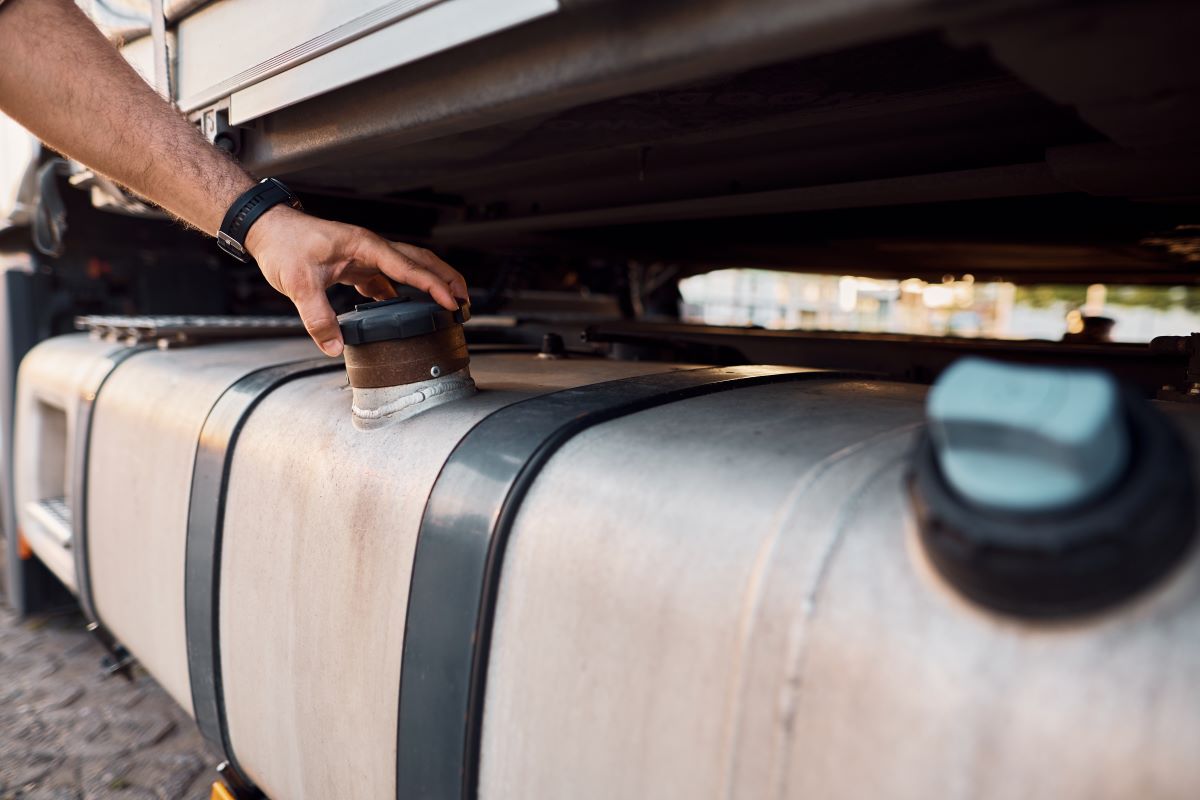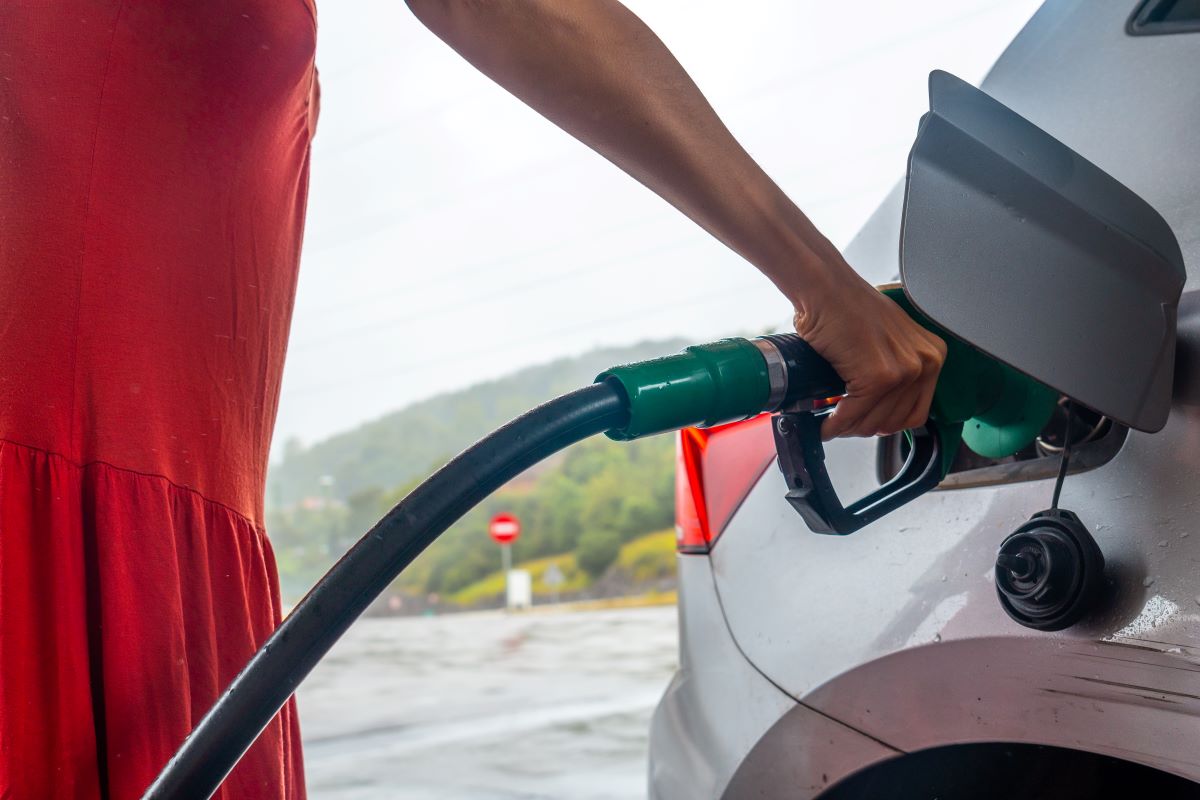How to Check the Fuel Tank Capacity of Cars?

Fuel tank capacity is crucial to every car, dictating its range and refuelling frequency. It directly impacts a driver's experience on the road, influencing travel distances and convenience. The fuel tank size varies widely among different car types, from compact city cars to rugged SUVs.
Exploring the nuances of fuel tank capacity provides valuable insights for drivers, allowing them to understand their car’s capabilities better and plan their journeys effectively.
What is the Average Car’s Fuel Tank Capacity?
The average car's fuel tank capacity typically ranges from 38 to 76 litres (10 to 20 gallons), with variations based on the make and model. This capacity enables most cars to cover approximately 483 to 644 kilometres (300 to 400 miles) on a full tank, depending on driving conditions and fuel efficiency.
What is Fuel Capacity with Respect to the Size of the Engine?

Here is a breakdown of typical gas tank capacities for cars with different engine cylinder counts:
Two-cylinder car gas tank capacity: Two-cylinder cars usually have smaller fuel tank capacities, typically ranging from 40 to 45 litres. Examples include the Smart Fortwo, Fiat 500, Chevrolet Spark, Mitsubishi i-MiEV, and Tata Nano.
- Four-cylinder car gas tank capacity: Four-cylinder cars commonly feature fuel tank capacities between 52 to 56 litres. Examples include the Toyota Corolla, Honda Civic, Volkswagen Golf, and Subaru Impreza.
- Six-cylinder car gas tank capacity: Six-cylinder cars typically have fuel tank capacities ranging from 56 to 60 litres. Examples include the Ford Mustang, Chevrolet Camaro, BMW 3 Series, Mercedes-Benz E-Class, and Audi A6.
- Eight-cylinder car gas tank capacity: Eight-cylinder cars often boast larger fuel tank capacities, ranging from 60 to 114 litres. Examples include the Ford F-150, Chevrolet Silverado, Dodge Charger, Jeep Grand Cherokee, and Toyota Tundra.
Which Cars have the Biggest Fuel Tank Capacity?
Certain car models are renowned for their impressive fuel tank capacities, including:
- Toyota Land Cruiser 300: This SUV boasts one of the largest fuel tank capacities, with a capacity of approximately 93 litres.
- Audi Q7: Another SUV known for its elegant design and impressive performance, the Audi Q7 features a fuel tank capacity of around 85 litres.
- Bently Bentayga: This luxurious car is renowned for its iconic design and powerful engine, with a fuel tank capacity of about 85 litres.
Which Cars have the Smallest Fuel Tank Capacity?
Some cars have smaller fuel tank capacities, such as:
- Toyota Prius: The Toyota Prius hybrid car, renowned for its exceptional fuel economy, typically has a fuel tank capacity of around 43 litres.
- Maruti Suzuki S-Presso: The Maruti Suzuki S-Presso, known for its bold design and efficient performance, typically has a fuel tank capacity of 27 litres.
- Tata Tiago: The Tata Tiago, known for its stylish design, spacious interior, and affordability, typically has a fuel tank capacity of about 35 litres.
- Maruti Suzuki Celerio: The Suzuki Celerio, a versatile car, known for its compact size, usually has a fuel tank capacity of around 35 litres.
What is the Fuel Tank Capacity of a Smart Car?

Smart cars, known for their compact size and urban agility, feature a diminutive fuel tank capacity suited to their efficient design. A typical smart car has a fuel tank capacity of around 26 litres, optimised for city driving and short-distance travel.
What is the Fuel Tank Capacity of a Race Car?
The fuel tank capacity of a race car varies depending on the specific racing series and regulations. However, race cars generally have smaller fuel tanks than road cars.
Their capacities can range from as low as 20 to 100 litres, depending on factors such as the type of racing (e.g., endurance racing, Formula 1, NASCAR) and the duration of the race.
Fuel tank capacity is a key factor in determining a car’s range and suitability for various driving scenarios. Whether it's navigating city streets in a compact car or embarking on a cross-country road trip in an SUV, understanding the fuel tank capacity allows drivers to plan their journeys effectively and enjoy a hassle-free driving experience.


















